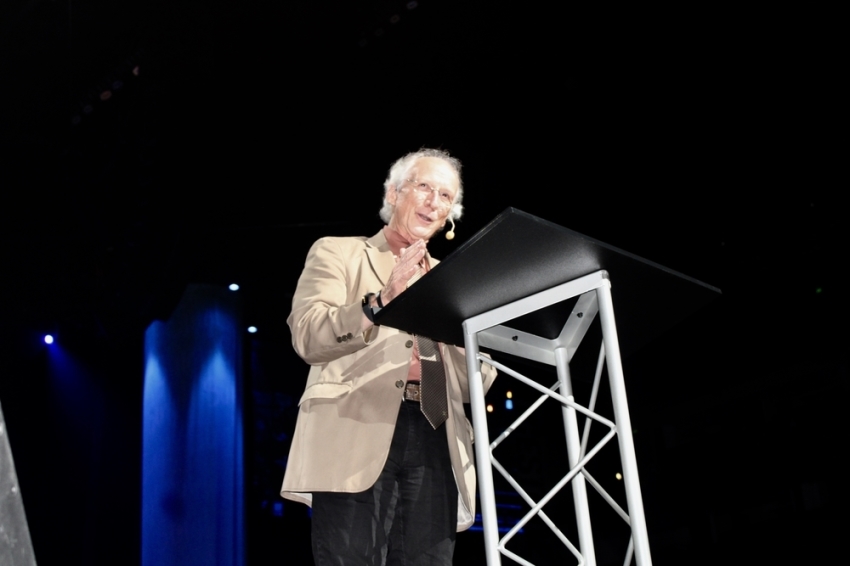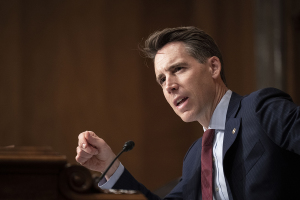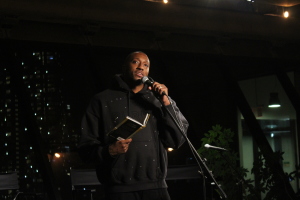Should false teachers be publicly rebuked? John Piper answers

Theologian John Piper has warned that false teaching and destructive behavior are “present dangers in this fallen world for the church” and identified five factors to consider before publicly naming a false teacher.
In an episode of “Ask Pastor John” posted to Desiring God on Friday, a listener inquired about whether or not false teachers need to be publicly called out for their faulty teaching.
“Are we taking a judgment that isn’t ours? Or should we rest in God’s ultimate knowledge? And if a prominent false teacher is to be called out, who does this — where and how?” the reader asked.
Piper, the founder of desiringGod.org and chancellor of Bethlehem College & Seminary, first identified several passages in the Bible that specifically instruct Christians to “avoid, rebuke, and call out” false teachers.
“Christians, and shepherds in particular, should be discerning and alert to behavior and teaching that dishonors Christ and destroys people — and not treat it in a casual or harmless way,” Piper said, adding that Scripture reveals that “false teaching and destructive behavior are present dangers in this fallen world for the church.”
“And all of us — especially shepherds, pastors — should be alert and discerning to identify, and in appropriate ways, expose,” he explained. “In order to protect the flock, we should expose them and minimize the spread of the gangrene (as Paul calls it).”
Christians are called to expose false teachers through “mouth judgment, writing judgment, behavior judgment” — not a “heart judgment” the pastor contended.
“When a mouth speaks unbiblical, destructive teaching, when a blog or an article or a book publishes unbiblical and destructive teaching, when a body — a human body, a physical body — behaves with unbiblical and destructive behavior, in all these cases, we are to be discerning,” he said.
Before publicly naming a false teacher, one should consider five factors, Piper said, including the seriousness and deceitfulness of the error; the size of the audience; the duration of their ministry; the vulnerability of the people for whom you are responsible, and the “role you have in influencing shepherds who really need to be discerning for who the false teachers are.”
“When you do name a false teacher, it’s best to do it in a setting where you do more than name-drop. You explain the error, you give reasons for rejecting it, you communicate complexities, you set a tone of longing for truth and love — you’re not just slinging mud,” he explained.
“The shape of error is always changing,” Piper concluded. “You can’t preach enough negative sermons to stay ahead of it. And you don’t have to. The best protection against the darkness of error is the light of truth.”
In a previous op-ed for CP, Craig Keener, professor of Biblical Studies at Asbury Theological Seminary, identified several defining characteristics of false teachers. False prophets not only seek their own honor, they also “exploit the flock” and “avoid even the hardship of saying something unpopular,” according to Keener.
“True apostles sacrifice for Christ,” he said. “True apostles are sacrificial servants for Christ’s body. Those who believe they fill this role today must serve Christ’s body sacrificially. Sometimes this sacrifice must include protecting Christ’s flock from false apostles.”
A 2017 study by Barna and Summit Ministries found that the Church is not immune to false teachings: only 17 percent of Christians have what the researchers consider a biblical worldview, demonstrating an “increasing pluralism, relativism and moral decline among Americans and even in the Church.”
The study found that the majority of practicing Christians agree with ideas from other faiths and secular philosophies, including postmodernism and Marxism.
“The Case for Christ” author Lee Strobel stressed the importance of biblical literacy and apologetics within the church to combat false teachings prevalent today.
“We live in a culture that’s sliding at a rapid pace away from Christian values and principles, and we need a revival, a people coming to faith so that their values and character and morality is brought under the teachings of God,” he told CP. “That changes the tenor and current of the nation. We have to do it through churches, and I believe we will see churches come alive through evangelism and apologetics. We can move toward having a national renewal of faith.”



























